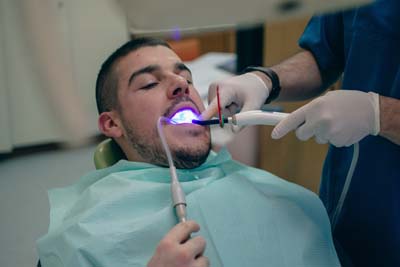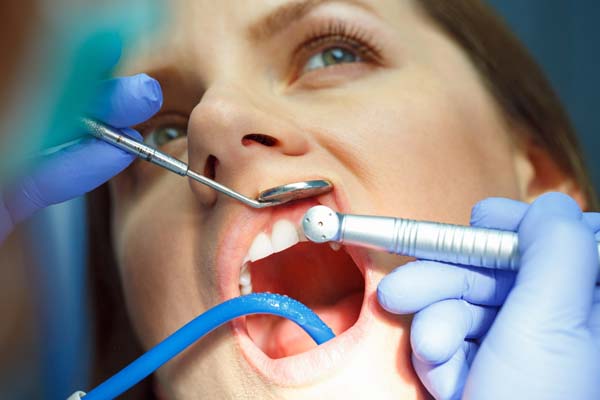Why You Should Avoid the ER for Emergency Dental Care

Looking into your Emergency Dental Care options? Dental emergencies are often scary, and all too many people visit the emergency room as they are not prepared when it comes to how to treat this type of immediate concern. However, it is often best to visit the emergency dentist for emergency dental care as they can offer more specialized treatment promptly.
3 Reasons to not visit the ER for emergency dental care
For life-threatening injuries or injuries that pose a serious threat to your long-term general health, visiting the ER before seeing an emergency dentist may be the best solution. However, the emergency room does not treat dental injuries, so non-life-threatening injuries are often best treated by an emergency dentist as they can treat bleeding, pain, and fix dental concerns.
1. The ER does not perform dental procedures
First and foremost, patients should avoid visiting the ER for emergency dental care simply because emergency room nurses and doctors are not trained on how to treat dental complications such as loose teeth, knocked-out teeth, and gum tissue injuries. Instead, they ensure their patients have pain relief and management of other general health symptoms until the patient can see a dentist for proper dental care. This leads to two different visits to treat the concern, whereas an emergency dentist can manage pain and swelling and provide oral health care.
2. The emergency dentist may help more with pain relief
ER doctors and nurses are trained to manage pain due to injuries. However, oral injuries are somewhat unique and often more complex to diagnose. Improper diagnosis of exactly what the source of pain and other symptoms is can lead to less effective pain relief measures and longer delays until the patient feels better. An emergency dentist can often diagnose the issue faster and more accurately; this allows them to manage the initial symptoms effectively in addition to providing long-term treatment for tooth and gum damage.
3. The emergency dentist can save damaged or missing teeth
If teeth are damaged, missing, or in jeopardy of becoming lost due to an oral health concern (tooth infection, deep dental cavity, etc.), then it is important to visit the emergency dentist promptly. Teeth that are knocked out or loose due to dental trauma can often be repositioned and saved, whereas an ER doctor does not typically know how to handle these concerns.
The importance of dental emergency prevention
Patients should do everything possible to prevent a dental injury from occurring. This should include reducing the risk of dental trauma by wearing a mouthguard during physical activity, limiting the consumption of foods and drinks that are high in sugar and alcohol, and practicing good oral hygiene through proper brushing, flossing, and mouthwash use.
Arrange a visit with our emergency dental care team
Call our emergency dental care team today for prompt treatment after a dental injury or oral health concern. Our team can treat a range of oral health and dental trauma concerns, and we can ensure you get the care you need in a timely manner.
Request an appointment here: https://www.schommerdental.com or call Schommer Dental at (563) 272-2331 for an appointment in our Davenport office.
Check out what others are saying about our dental services on Yelp: Emergency Dental Care in Davenport, IA.
Recent Posts
An emergency dentist can treat toothaches in a variety of ways if the pain becomes intolerable or the symptoms present a risk of worsening and causing other oral health issues if not treated promptly. However, for minor toothaches that can wait until a more convenient time to be scheduled, emergency dentists may provide useful tips…
The severity of a cracked tooth often determines how a dentist goes about treating it. Minor cracks to a tooth only affect its outer layers, so there is rarely any pain involved. The damage is typically aesthetic, but treatment is still needed because the outer layer of a tooth being damaged leaves it more vulnerable…
According to the American Dental Association, due to the coronavirus outbreak, dentists are now advised to handle only emergency dentistry procedures and postpone elective treatments. Dental emergencies often vary in terms of severity. In some cases, certain measures can be taken to get temporary relief while waiting for a dental appointment. On the other hand,…
Teeth grinding, or bruxism, is the term for describing teeth grinding when you are not chewing. The teeth brush against each other with the forward, backward, or sideways movement of the jaw. In most cases, the person is not aware of the activity.Teeth clenching happens when a person keeps their teeth against each other with…


